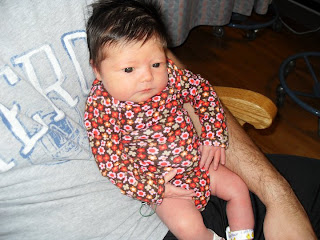But first, weirdest search engine reader of the week:
"nostalgic older women in full cut panties".
Really?
I hope they found out that I am just
not that woman!
My first introduction to Dr. Oliver Sacks was when I saw the movie "Awakenings", although I didn't know it at the time. A few years later I took a Psych class while working on my music therapy degree and his name popped up. I read
Awakenings and
The Man Who Mistook his Wife for a Hat and I was hooked. Dr. Sacks is a rare combination of scientist and physician (neurologist) who can also write a riveting book that is composed entirely of case histories. He has been referred to as "the poet laureate of medicine" and given an award, by Rockefeller University, which recognizes the scientist as poet.
I am slowly working my way through his entire body of work and am constantly impressed by his powers of observation as well as his empathy. Dr. Sacks has seen some extraordinary cases of neurological dysfunction and his accounts of his patients are gripping and empathetically written. You never get the impression that these are just case studies, but that they are people in whom he is deeply interested.
He has become one of my heroes, even though he describes himself as an old Jewish atheist.
When I heard that Dr. Sacks was coming to Portland to lecture on his new book,
Musicophilia, I knew I had to be there. I bought two tickets, one for me and one for my trusty sidekick. The one who goes along with all my adventures. You know who he is! And even though I was on crutches and in pain from my broken leg at the time, we went to the lecture.
Upon arriving home, I was inspired to write to Dr. Sacks. I described one of my elderly music therapy clients and told him of all of the wonderful ways in which she had responded to musical interventions. How she had no short or long-term memory to speak of, yet she remembered me from one week to the next. That she also remembered how to play short, familiar songs that I taught her on a little xylophone. I told him how happily she responded to me, even though she was quite deaf and unresponsive to social overtures from other people, and how the caregivers marveled at how alive she became during our sessions. I asked Dr. Sacks if he would consider writing a book devoted entirely to music therapy anecdotes. And I told him about the sad state of funding for music therapy in Oregon.
I had heard that Dr. Sacks responds to every letter he receives, but I didn't quite believe it.
Then, a few weeks later, this came in my mail.
His writing is difficult to decipher, so here is a transcription:
Dear Ms Osborne
Thank you for writing. I was most interested – and moved – by your description of the power(s) of music therapy with your elderly lady with dementia (I would like to quote from your letter sometime!); but upset – and surprised – when I heard that Oregon has “pretty much ruled out” any funding for MT.
A third of my book (Musicophilia) is in fact devoted to stories of MT in relation to various conditions (Parkinson’s, Tourette’s, aphasia, Alzheimer’s etc.), trying to define its powers and limitations, and their neural basis.
I hope this part of the book will help “legitimate” the real potentials of MT – and maybe help to reverse unfortunate and ill-considered decisions, like Oregon’s withdrawing of the funding it needs.
Again, thanks for writing
With kind regards
Oliver Sacks
If you want to try one his books, I recommend starting with The Man Who Mistook his Wife for a Hat. It is interesting and amusing and you will think thoughts you have never thought before.







































